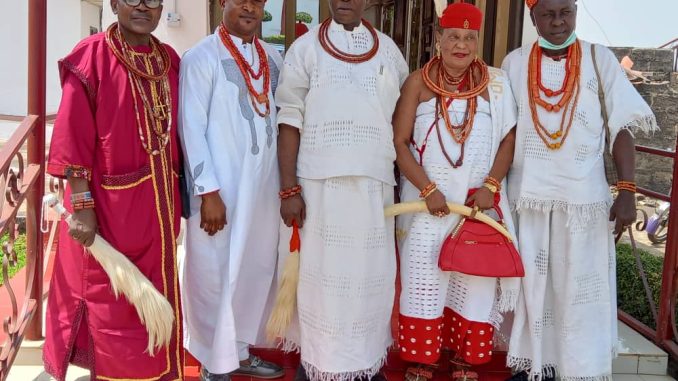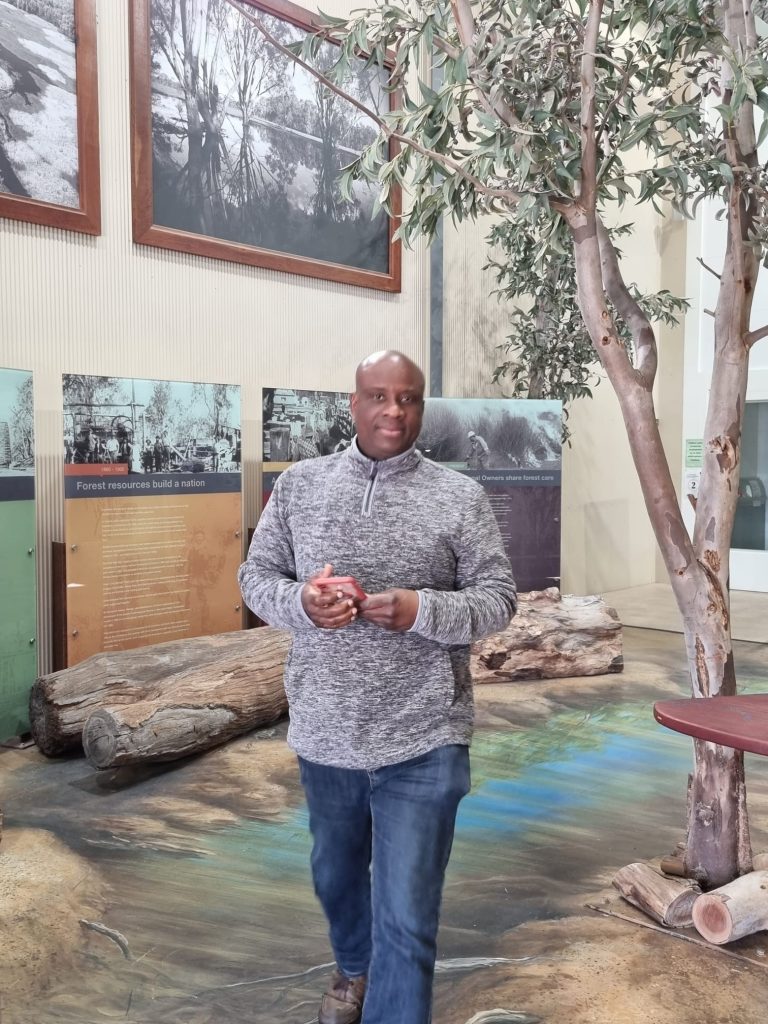
By Obinna Ejianya (9News Nigeria – Melbourne, Australia)
It is shocking and disheartening to observe that individuals of Igbo ancestry, despite their natural heritage, have consciously or inadvertently distanced themselves from their Igbo identity.
This phenomenon is most prevalent among the Igbos residing in the South-South region of Nigeria, including Rivers, Cross River, Bayelsa, Kogi, and other states. This article therefore, aims to shed light on the historical and sociopolitical factors contributing to this syndrome, emphasize the diversity of Igbo language and culture, the significance of Igbo names, the uniqueness of different Igbo accents across different states, and stress the importance of embracing and promoting one’s Igbo cultural heritage and identity.
The roots of this trend can be traced back to the Biafran war era, some 50 years ago during which some Igbos from the South-South region were coerced into renouncing their Igbo identity in exchange for political favors and positions.
Denouncing Igbo Identity:
The Biafran War played a significant role in fostering this syndrome, as some Igbos from the South-South region were politically manipulated into renouncing their Igbo heritage in exchange for personal gain, political favor, and positions of power. As a result, people from the South-south of Nigeria began the illusional journey of distancing themselves from their Igbo identity, leading to a decline in the promotion and preservation of Igbo culture and language within these regions.
The aftermath of the Biafran War resulted in political manipulation that made people from the South-South region of Nigeria begin to disassociate themselves from their Igbo heritage.
Diverse Igbo Identities:
Igbos are not solely confined to Delta State, Anambra, Enugu, Ebonyi, Abia, and Imo State. They can also be found in Rivers, Bayelsa, Cross River, and Kogi states.
Contrary to popular belief, Igbos are not solely concentrated in Delta State, Anambra, Enugu, Ebonyi, Abia, and Imo State; they can also be found in Rivers, Bayelsa, Cross River, and Kogi states. Each state’s Igbo population possesses distinct accents and ways of speaking the Igbo language.
It is important to articulate the observance that Igbos from different states have distinct accents, dialects, and variations in their Igbo language and customs which include typical Igbo way of dressing, chieftaincy titles, songs, dancing, and food which culminate and have Igboness in them.
For instance, people from Awka North and South in Anambra State speak differently compared to other parts of the state. Similarly, Igbos from Ebonyi, Enugu, Abia, and Imo states each have their unique ways of speaking Igbo. Owerri, for instance, has a distinct accent that may be challenging for non-Owerri speakers to understand. These differences, however, should be celebrated as they contribute to the rich diversity within the Igbo community.
This diversity should be celebrated, as it reflects the richness and uniqueness of the Igbo culture.
Promoting Igbo Dialects and Accents:
Rather than suppressing their Igbo dialects and accents, individuals should embrace and promote them. Speaking Igbo to fellow Igbo individuals fosters a sense of unity and cultural pride. While there is a standardized version known as Central Igbo, derived from Abia State, each Igbo state has developed its own widely accepted Igbo dialect to facilitate mutual understanding. For example, an Onitsha person’s Igbo dialect closely resembles that of the Anioma people in Delta State. Even within larger cities like Onitsha, indigenous Onitsha people have modified their dialect to ensure effective communication with other Igbo speakers.
Enugu and Ebonyi States: Igbo people from Enugu and Ebonyi states have evolved their dialects to accommodate the linguistic nuances of other Igbo dialects. They have made adjustments in pronunciation and vocabulary to ensure effective communication with Igbos from different regions. This adaptability showcases their willingness to bridge linguistic gaps and foster unity within the Igbo community.
Anambra and Delta States: Anambra, being a diverse state, has various Igbo dialects spoken within its borders. For instance, individuals from Onitsha, a prominent city in Anambra State, have modified their dialect to closely align with the Igbo dialect spoken by the Anioma people in Delta State. This adjustment allows for seamless communication between Onitsha and Anioma speakers, despite their geographical separation.
Imo State: In Imo State, which encompasses several distinct Igbo communities, there is a conscious effort to dilute regional accents and adopt a more standardized Igbo dialect. This is done to ensure that Imo State Igbos can communicate effectively with Igbos from other regions, promoting mutual understanding and preserving their shared Igbo identity.
Abia State: Abia State serves as a hub for the Central Igbo dialect, which is widely accepted and understood by Igbos from various states. As a result, individuals from Abia State have taken the initiative to maintain and promote this dialect, making it easier for Igbos from other regions to communicate with them.
These examples highlight the adaptability and willingness of Igbos from different states to modify their dialects for the sake of effective communication and unity within the larger Igbo community. By embracing these linguistic adjustments, they demonstrate their commitment to preserving their Igbo identity while fostering harmonious relations with fellow Igbo speakers from diverse backgrounds.
Instead of shying away from their Igbo dialect, individuals should be encouraged to embrace and speak their native language with fellow Igbos. While there is a standardized form known as Central Igbo, derived from Abia State, each Igbo state has developed its widely accepted dialect to ensure mutual understanding among different Igbo communities. For example, the Onitsha people have adjusted their dialect to resemble that of the Anioma people in Delta State, facilitating communication. Enugu and Ebonyi state Igbos have also evolved their dialects to accommodate other Igbo communities. Thus, the variation in accents and dialects does not diminish one’s Igboness but rather highlights the individuality and diversity within the Igbo culture.
Sense of Pride In Embracing Your Igbo Heritage and Identity:
It is crucial to emphasize that having a different Igbo dialect does not diminish one’s Igboness. Adapting other tribal identities instead of embracing Igbo culture and dialect is illogical. Your Igbo heritage and identity can never truly be disowned, as every aspect of your being reflects your Igbo background. Even if the spelling or pronunciation of your Igbo name is altered, it still signifies your Igboness. Therefore, it is imperative to shed this syndrome of distancing oneself from Igbo heritage and proudly embrace one’s identity as an Igbo person. Be proud to show off your Igbo background and identity because it becomes very hard to cover up your Igbo name, language, and other cultural heritage while pretending to be someone else other than who you are.
Igbo names are typically derived from Igbo words, proverbs, or historical events, and they carry the linguistic and cultural essence of the Igbo language. Through names, Igbo cultural values, beliefs, and traditions are perpetuated. They serve as a reminder of the rich heritage and distinct identity of the Igbo people.
Igbo names hold immense cultural significance in the Igbo community. They serve as a link to ancestral connections, preserve linguistic and cultural identity, foster a sense of community, contribute to cultural preservation, and facilitate the transmission of cultural knowledge. By embracing and promoting Igbo names, individuals actively participate in the preservation and celebration of Igbo cultural heritage.
Individuals affected by this syndrome should make concerted efforts to overcome it and proudly embrace their Igbo heritage and identity. Denouncing one’s Igbo ancestry becomes increasingly difficult when all other aspects of a person’s life, such as their name, customs, and cultural practices, unmistakably indicate their Igbo background. Even if an Igbo name is spelled or pronounced differently, it still signifies Igboness. Names like Wike (Nwike in other dialects) and Wigwe (Nwigwe) are all Igbo names, and one should take pride in them. Therefore, individuals and communities should promote their Igbo cultural heritage and identity, recognizing that they cannot adopt another heritage.
In conclusion, individuals of Igbo ancestral descent, regardless of their state of origin, should preserve and promote their Igbo identity. The diverse Igbo dialects within different states contribute to the cultural richness of the Igbo community. Celebrating and speaking Igbo fosters unity and understanding among Igbo speakers. Embracing one’s Igbo heritage is essential, as it is an integral part of one’s identity that cannot be replaced or disowned.
By Obinna Ejianya (9News Nigeria – Melbourne, Australia)

